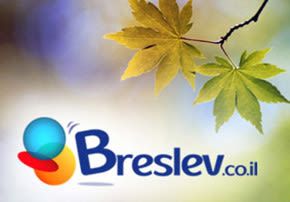
Choose Life!
I think that one of the most crucial choices we can make is to turn to the Almighty and ask Him for guidance in making the correct decisions...

I think that one of the most crucial choices we can make is to turn to the Almighty and ask Him for guidance in making the correct decisions. After all, it's a matter of choosing life.
Our life consists of choices – and how we choose determines the course of our lives.
I recently had the tremendous privilege of traveling to the United States and interviewing Breslovers for a forthcoming book to be put out by the Breslov Research Institute. I heard amazing stories of mesirut nefesh, self sacrifice, to attain spiritual achievement and growth.
One particular young man told me an incredible story. He was from a prominent non-Chassidic family, and one of, if not THE, top boys in his top-notch yeshiva. You get the idea – the epitome of success.
But he was expelled from yeshiva for traveling to Uman for Rosh Hashana. Another yeshiva was willing to accept the young man into their program, but under one condition – that he sever all ties with Breslov, and that a senior Rosh Yeshiva would sign a letter to that effect.
The heartbroken father went to one of the senior Rosh Yeshivot in the United States, and said, "Please talk with my son. Tell him to stop this mushugas (crziness) about Breslov."
(Note: some people have the wrong impression of Breslov and think that Breslov emphasizes prayer and joy at the expense of learning Torah or keeping the Halachot. Rebbe Nachman often spoke about the importance of learning Gemara and Shulchan Aruch, and pointed out that Chassidut is to be studied in addition to one's regular learning schedule.)
The Rosh Yeshiva agreed to speak with the "wayward" son.
When the boy arrived, the Rosh Yeshiva said, "When I learned in Baronvitch (one of the most prestigious yeshivot in prewar Europe) under Rabbi Elchanan Wasserman hy"d, I noticed a particular group of boys that excelled in everything they did. Everyone in the yeshiva learned with hatmada (diligently), but these boys learned with even more hatmada. Everyone in the yeshiva took their davening seriously, but these boys took their davening even more seriously. There was something special about them. They had a burning desire for spiritual growth that drove them to attain tremendous heights. I wondered what was the source that burning desire until someone in the yeshiva explained that they were Breslovers. If that's what Breslov can do, then be a Breslover. I cannot prevent a bachur from taking a spiritual path that will help him attain such tremendous spiritual heights. You have my blessings."
I was extremely moved by this young man's story. He chose to jeopardize his standing as a "top notch bachur" to reach for greater spiritual heights. In the end, he not only achieved those spiritual heights, he also achieved the accolade of the people around him.
Of course not all of us are faced with such extreme decisions, but every choice we make, every time we prioritize, we are changing the direction of our lives.
While in the States, I visited an elderly gentleman who is presently facing the results of his choices. Determined to become a financial success, he devoted himself to his business, at the expense of his family. He scrimped and saved, putting away every cent he earned for the "future." But when the "future" became the present, he was incapable of change and found himself imprisoned in his stinginess, unable to enjoy his hard earned money. Although he had succeeded financially, his family life is a disaster. His life is without anything real. Yes, he has a comfortable armchair, a wide-screen color television, and sufficient food, but those things that make life real – family, spiritual accomplishments, joy in knowing that one has made the world better place – are completely missing from his life. He is locked in a spiritual prison of his own making, and the decisions he made to create that prison are so ingrained within him that he is incapable of taking even a tiny step towards liberation.
I recently read a story that exemplifies the idea of becoming trapped in one's behavior – and how we behave is a result of the choices we make:
Rabbi Myer Schwab is the founder and dean of the Bais Yaakov High School of Denver, Colorado. He is also responsible for the financial stability of the school, and in this role he often meets with philanthropists to enlist their support.
In the early 1970's there was a millionaire in Denver, an elderly gentleman named Max Rabinowitz (not his real name) who had remained Jewishly observant even though most of his friends and family were not. He gave charity, but his parameters for giving were not in proportion to his wealth. He considered $500 a large donation, when in reality he could easily have given 10 times that amount. His children were independently wealthy, he owned factories and real estate, but he could not part with large sums of money except for business investments. Indeed the most Max ever donated to the Jewish schools in Denver was $500.
One morning as Rabbi Schwab was teaching a class, he was interrupted by his secretary. "I am sorry to disturb you," she said with urgency, "but you have an extremely important phone call."
Reluctant to stop the lesson, Rabbi Schwab asked the Secretary if the call could possibly wait till later. "No," she said, "they are calling from the hospital."
Rabbi Schwab rushed to his office and picked up the phone. It was Max Rabinowitz. "Rabbi," he said, "I must see you right away."
Six months earlier, Max had asked Rabbi Schwab to get him a prayer book that contained the Viduy confessional prayer recited on a death bed. Now, on the phone, Max pleaded with Rabbi Schwab to come immediately. "By this afternoon, it will be too late," Max said softly.
When Rabbi Schwab came to Max's room, his family was gathered at his bedside. After Rabbi Schwab greeted all those present, Max asked everyone to leave the room. Slowly and carefully, Rabbi Schwab recited with Max the poignant words of Viduy. When they finished, silence enveloped in the room. Then Max said softly, "I remember when I was a little boy and there was a rabbi who came to our town. He spoke of the importance of giving charity, and mentioned over and over the expression, 'Charity rescues from death.' Before my end, I would like to fulfill that mitzvah and be clear with God. I have prepared two checks: one for the Jewish girls' school and one for the boys' school in Denver. Please take them out of the drawer and deliver them."
Rabbi Schwab thought hopefully that perhaps his budgetary problems for the year might be over. He opened the top drawer of the cabinet and took out the two checks. He could not believe his eyes. Each check was for $500.
Rabbi Schwab stared at the checks and was incredulous. "Max," he exclaimed, "you have the opportunity to acquire a share in the World to Come as you never did before. Our girls' school is now housed in trailers. We need a building. Max, give us $50,000 and we'll put your name on the building as an everlasting testimony to your charity. You'll be helping hundreds of girls who are the future mothers of our people. This is your last chance."
Max thought for a long moment and then said, "Believe me, my heart wants to give, and my head understands that it's the right thing to do — but my hand refuses to let itself be opened." (emphasis mine, ds)
Max died that night, forever bereft of the opportunity of magnanimous eternal reward.
Days later Rabbi Schwab defined this episode. He said, "In discussing a person's a reluctance to give charity, the Torah warns, 'You shall not harden your heart or close your hand' (Devarim 15:7). The Torah says that there two parts to the mitzvah of charity, the heart and hand. A person can understand that his financial help is needed and that the situation is dire, but if he is not trained from his earliest years to open his hand to benefit others, he will find it all but impossible to part with his money."
(Excerpted from "REFLECTIONS OF THE MAGGID" – inspirational stories from around the globe and around the corner Published by ArtScroll/Mesorah Publications Ltd., Brooklyn, NY.)
Giving to our Children
On a deeper level, our decisions determine who we become, and in becoming that person, we bestow that potential on our descendants.
When the Jewish people stood at Mount Sinai and proclaimed, "We will do and we will hear," they bestowed their descendents with the ability to follow Hashem's Torah through the trials and tribulations of the Exile. Throughout the generations, our people has been willing to die rather than convert. That strength has given us the ability to make "sacrifices" to lead a Torah life.
We have tremendous potential, and actualizing that potential depends on our choices. Choices involve prioritizing, since nothing, except the Almighty, is perfect. What's more important – a new car of time with the family? Taking time to learn Torah or attending a wedding? Baking a cake for a sick friend or spending time with the children or grandchildren? The choices are not always clear. I think that one of the most crucial choices we can make is to turn to the Almighty and ask Him for guidance in making the correct decisions. After all, it's a matter of choosing life.


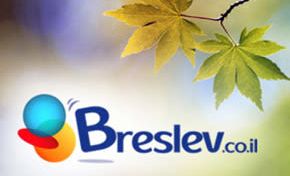
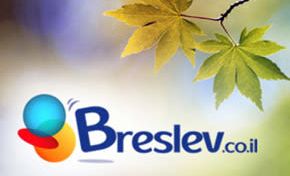
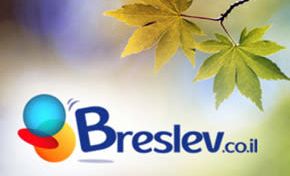

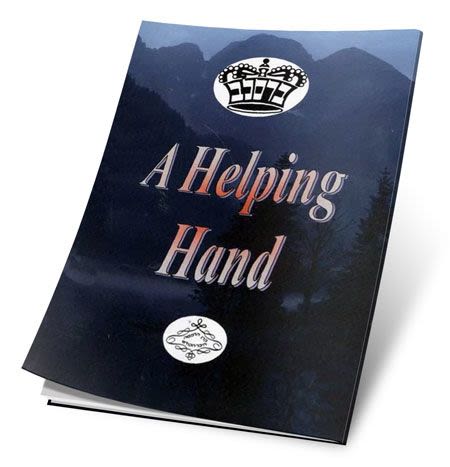


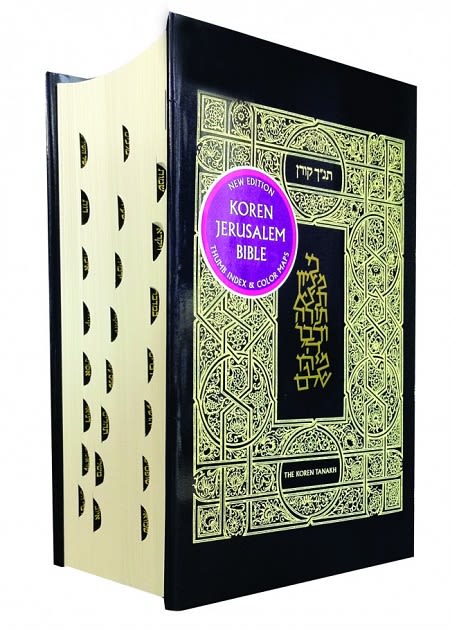

Tell us what you think!
Thank you for your comment!
It will be published after approval by the Editor.